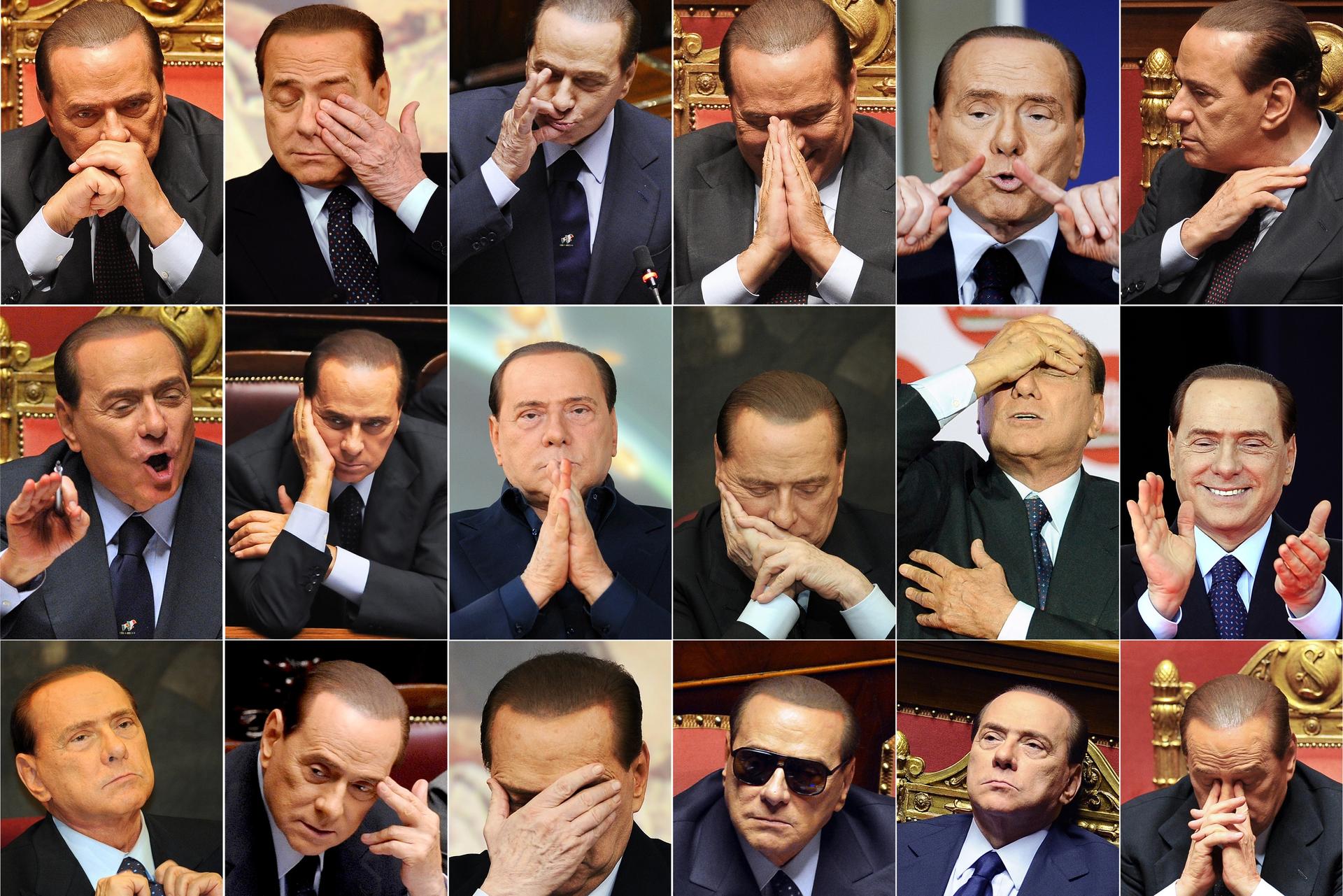Not quite ciao, ciao Silvio
BRUSSELS, Belgium — It was vintage Berlusconi.
Il Cavaliere's nine-minute video response to the Italian Supreme Court's confirmation of his conviction for tax fraud was a mix of pathos, controlled fury and attempts at statesman-like gravitas.
Berlusconi lamented that Italy had stooped low enough to inflict such indignities on his illustrious self. Proclaiming his innocence, he hinted darkly of a leftist conspiracy that produced a level of judicial harassment "unseen in the civilized world."
"Is this how Italy rewards the sacrifices and commitment of its best citizens?" he asked.
"Is the Italy we love? Is this the Italy we want? Of course not. For this, we must continue our struggle for freedom."
After surviving more than 40 legal cases in two decades of dominating Italian politics, Berlusconi is finally a convicted felon.
In most countries, such a verdict — not to mention convictions for abuse of power and paying for sex with a minor, which are still pending appeal — would terminate a political career.
In Italy, that’s by no means certain.
Leading figures in the conservative party he heads have raced to Berlusconi's support and the fate of the coalition government thrown together this spring to pull the country out of economic crisis remains very much in the hands of the 76-year-old media magnate and three-time prime minister.
A poll Friday suggested 43 percent of Italians believe Berlusconi is being persecuted by magistrates.
"Berlusconi is not finished," headlined the daily Il Giornale, part of the Berlusconi media empire.
His chances of going to jail are as likely as snow in the Neapolitan summer.
The four-year sentence will be immediately reduced to one year under an amnesty law. Italian legislation states that criminals older than 70 must serve prison time only for the most serious crimes.
That means Berlusconi will face a choice between community service or a year of house arrest.
Speculation is rife as to whether that will be in his Rome palazzo, Sardinian villa or the luxurious residence outside Milan that’s the alleged venue for many of his notorious bunga-bunga parties.
His passport will be revoked, so the place in Bermuda looks to be ruled out.
More complicated for Berlusconi and his supporters are the implications of the judges' decision on his right to hold political office. The Corte Suprema di Cassazione ordered a judicial review of a lower court's imposition of a five-year ban.
However, as a convicted felon, Berlusconi is already theoretically ineligible to run again thanks to a law passed last year. It also allows the Italian Senate to vote on stripping him of his seat in the chamber.
The timing of Berlusconi’s verdict is very much on his side, however: The prospect of that Senate vote risks tearing apart the uneasy government coalition between Berlusconi's conservatives and Letta's left-of-center Democratic Party.
Most Democratic Party members would dearly love to see the back of Berlusconi. But should they vote to kick him out, People of Freedom looks sure to bring down the government and cast Italy into a new round of political instability.
Despite the ban, Berlusconi could still lead his party in an election campaign even though he wouldn’t be able to take office should it win.
He has a high-profile precedent: comedian-turned politician Beppe Grillo led his anti-establishment Five Star Movement to a stunning success in elections last February to become the largest opposition party, despite his ban on holding office imposed after a manslaughter conviction in the 1980s.
As passions ran high in Rome on Friday, Berlusconi supporters loudly proclaimed that the party was solidly behind its leader.
"Berlusconi will continue to be our point of reference outside parliament," said Renato Brunetta, the People of Freedom's leader in the lower house of parliament.
"Leaders are leaders because they represent a people… they represent history, the past, the present, the future," he said during a radio interview.
The fear of political uncertainty new elections would bring risks setting back the Letta government's efforts to inject confidence in the Italian economy, which is enduring a second year of recession and struggling to cope with the euro zone's second-highest debt ratio after Greece.
Letta on Friday appealed to politicians to think of the national interest, but told reporters he would not cling to power at any cost.
More from GlobalPost: Femen goes global
A new political crisis in its third-largest economy would also risk destabilizing the wider euro zone.
Markets have been relatively calm for a year now, but despite some very tentative signs of recovery, southern Europe remains mired in deep recession.
Governments across Europe’s south are looking shaky against the grim economic backdrop.
Spain's Prime Minister Mariano Rajoy was forced to appear before parliament Thursday to counter charges he took under-the-counter payments from a slush fund run by his conservative party.
Portugal's coalition government has narrowly survived a two-week political crisis but still looks fragile ahead of nationwide municipal elections in September. Fears the Greek government won't be able to meet its debt repayments provoked unusually public tensions at the International Monetary Fund this week.
Euro zone doubts will not be helped by a long, hot political summer in Italy with or without Berlusconi in the thick of the action.
Every day, reporters and producers at The World are hard at work bringing you human-centered news from across the globe. But we can’t do it without you. We need your support to ensure we can continue this work for another year.
Make a gift today, and you’ll help us unlock a matching gift of $67,000!
